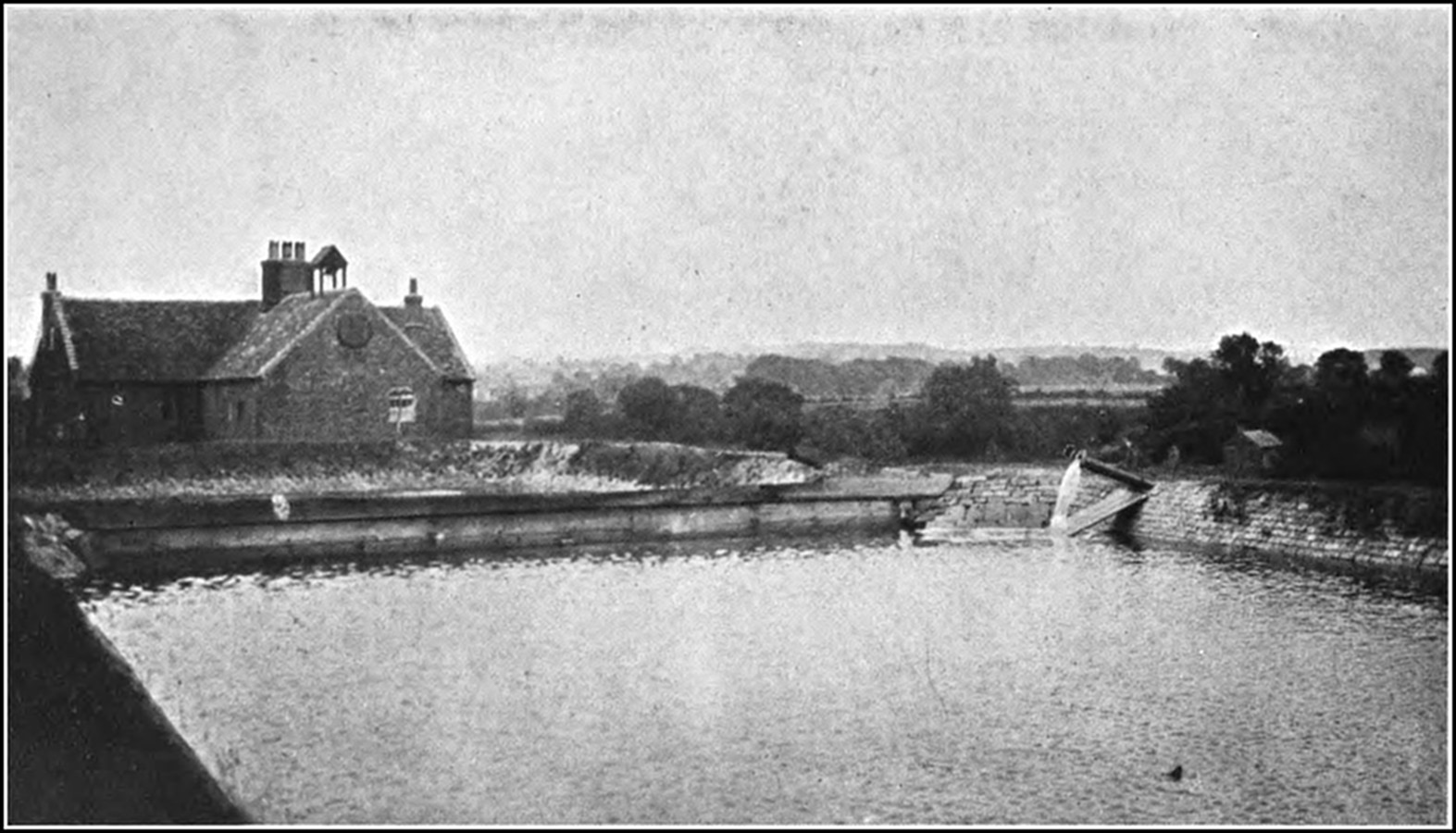Transcriber’s Note
Larger versions of most illustrations may be seen by right-clicking themand selecting an option to view them separately, or by double-tapping and/orstretching them.
i

VIEW OF THE COMMERCIAL SALT COMPANY’S BRINE RESERVOIRS AT RODE HEATH, CHESHIRE,
Showing the Brine being pumped up from a depth of 250 feet
Frontispiece
PITMAN’S COMMON COMMODITIES
AND INDUSTRIES
SALT
AND THE
SALT INDUSTRY
BY
ALBERT F. CALVERT, F.C.S.
AUTHOR OF “SALT IN CHESHIRE”;
“THE SALT DEPOSITS OF THE WORLD”; ETC.
London
Sir Isaac Pitman & Sons, Ltd., 1 Amen Corner, E.C.4
Bath, Melbourne and New York
Printed by Sir Isaac Pitman
& Sons, Ltd., London, Bath,
Melbourne and New York
iii
PREFACE
The fact that salt is almost universally distributedover the surface of the globe, and has been worked in anumber of countries from time immemorial, will explainthe impossibility, in the limited space at my disposal,to consider the mineral and its manufacture comprehensivelyas the staple of a world-industry. The saltdeposits of China, India, Russia, Japan, and Austriawould each require a volume of the size of this ifthe subject was to be even adequately represented. Ihave, therefore, dared to assume that the public willaccept a book practically restricted to one phase of thematter, and allow me to concentrate upon our Cheshiresalt district and its industry.
Caesar’s salinators, who found the natives of Cheshireprocuring brine from little natural springs in theneighbourhoods of Northwich and Nantwich, taughtthem to boil the brine and precipitate the salt crystalsin open pans set over open fires, and in the following1,700 years all the salt of Cheshire was manufacturedby that process. With the discovery of rock salt in1670, mining was introduced, and for another 200 yearsboth rock salt and brine salt were produced. But fromcauses which I have described, the mines collapsed inrapid succession from about the middle of the nineteenthcentury, and fresh water breaking into theabandoned workings converted them into the brinereservoirs from which the salt-men have since obtainedtheir inexhaustible supplies of brine.
But, although the salt industry is one of the oldest inthe country, it has received scant treatment at thehands of authors, and this is accounted for by the factivthat the trade has been conducted by a comparativelysmall group of men who have resisted all attempts ofoutsiders to participate in either their secrets or theirprofits. The desire for information has been consistentlyrebuked, and practical details relati